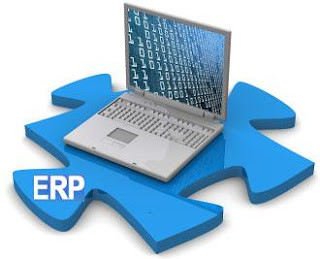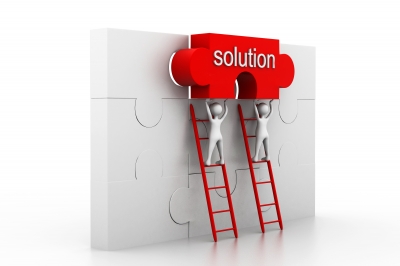What does ERP mean...please?
ERP is also known as Enterprise Resource Planning (ERP)... QUESTION: So what does ERP stand for...please?


As ERP and CRM software consultants we are often asked “What is ERP?” ERP is a business strategy and ERP software is the tool used to implement the strategy. Big companies or enterprise level businesses who have huge budgets have led the way with ERP and usually implement ERP software like Oracle, JD Edwards or SAP. Today even small and medium sized businesses have many affordable ERP software options available. In fact, even QuickBooks has a version that is considered an ERP software solution – QuickBooks Enterprise. Review our 10 questions below to discover if it's time for your business to consider adopting an ERP strategy or ERP software system.
ERP stands for Enterprise Resource Planning. “What is ERP?” is a popular question because the term does not explain what ERP is all about. Enterprise Resource Planning evolved years ago from the term Material Resource Planning (MRP) which is a manufacturing business strategy. MRP is a topic for another day, ERP is a business strategy or philosophy that refers to business processes that enable a company to grow and meet or beat standards of excellence. It is highly recommended that a business first undergo a business process assessment (BPA) by an ERP consultant before implementing an ERP strategy. A BPA is meant to set priorities and reveal business processes that can be improved. A BPA will assess current and future software, integration, custom programming, hardware, staff, training, workflow process, and desired output. Let’s slow down on the acronymns and look into ERP software.
ERP software helps implement this strategy by automating the business process strategies between departments and integrating workflows and data. An ERP system will help all the departments in your business increase collaboration and information sharing. Your accounting, sales, human resources, operations, and any other departments will have access to the critical company wide information they need to do their job. ERP software systems increase performance, eliminate waste, and assist decision makers within the business by providing accurate forecasting and relevant data that is available on a day-to-day basis to run the business according to changes with key indicators. There are several things to consider when deciding if your small or medium sized business is ready to implement an ERP strategy and make an investment in an ERP software system.
If you are a small or medium sized business, here are 10 questions to ask to determine if your business is ready to get started with implementing an ERP strategy and begin evaluating ERP software options:
If you answered “Yes” to any of the questions above, then an ERP software system is in your future growth plan. It is important to consider the costs and the impact that implementing an ERP software system will have on your business. Your best first step is to find an ERP consultant that is experienced and understands your business. They will help you get started on the business process assessment. Also, consider the long-term Return on Investment (ROI) and if your people are sophisticated enough to handle new training and are ready for the change. We hope this helps you understand “What is ERP?” a littler better. In a previous blog, we covered “What is CRM?” since that’s the next most popular question we get.
As ERP and CRM consultants, our team at Agile Business and Technology Solutions works collaboratively to set up an ERP strategy that works best for you. Take charge of your operations, increase work speed and productivity through fluid communication across departments using our ERP solutions. CONTACT US to learn how our team of ERP and CRM experts will help you get started and maximize your ERP or CRM solution.

ERP is also known as Enterprise Resource Planning (ERP)... QUESTION: So what does ERP stand for...please?

1 min read
What is ERP? It’s Enterprise Resource Planning, of course. What does that really mean? What is ERP is a BIG topic so we will cover it in a series...

Written by Sage 100 ERP Consultant, Lloyd Smith with Mindover Software, Austin, TX Enterprise resource planning (ERP) as a business strategy and...